India’s top court refuses to suspend citizenship law, again
India’s top court has refused to suspend the implementation of a new controversial citizenship law that is widely considered anti-Muslim, saying a constitutional bench of five judges should hear the petitions and rule on the matter.
India’s Supreme Court said on Wednesday it would give Prime Minister Narendra Modi’s government four weeks to reply to 144 petitions challenging the constitutional validity of the new Citizenship Amendment Act (CAA), which has triggered nationwide demonstrations since last month.
Opposition leaders, Muslim organizations, and student groups had petitioned the court to suspend the implementation of the law until the challenges to the legislation were settled.
“We will give you four weeks to file reply to all petitions,” Chief Justice Sharad Arvind Bobde — who heads a three-bench panel — told the government’s top lawyer.
He also indicated that the next hearing would be held in late February.
Back in December last year, the court had similarly refused to stop the implementation of the law and agreed to hear the petitions.
The law, backed by Modi’s Hindu nationalist Bharatiya Janata Party (BJP), allows granting citizenship to the millions of migrants who legally or illegally came into India from Pakistan, Bangladesh, or Afghanistan before December 2014 — but not if they are Muslims.
Critics say the law will be used in conjunction with a citizenship list that could require all Indians to produce documents proving their origins, a challenge in a country where many people lack official records, including birth certificates.
Muslims fear the new law may be misused to strip them of their citizenship. The ruling BJP, however, argues the law has nothing to do with the country’s Muslims but aims to help those suffering alleged religious persecution in the neighboring countries.
Widespread demonstrations have rocked the Hindu-majority nation since the law was approved by parliament in December.
At least 27 people, mostly Muslims, have been killed in clashes with police, which has been accused of using disproportionate force in several states.
The biggest student organization in India’s northeastern state of Assam, where some of the worst violence was seen during widespread protests against the law last month, said it would keep up its opposition.
“Non-violent and democratic protests will continue alongside the legal battle,” said All Assam Students Union Secretary General Lorinjyoti Gogoi.
At least 40 Palestinian journalists being held in Israeli prisons: Advocacy group
US delivers more F-35 jets to Israeli regime despite Gaza truce violations
Blair distances himself from Trump’s $1bn ‘Board of Peace’ fee
US Justice Department refuses probe into killing of Minneapolis mother
VIDEO | Israel Gaza ceasefire violations
VIDEO | Gaza Solidarity Forum in Damascus calls for boycott of Israel over Gaza genocide
VIDEO | London memorial event highlights Gaza genocide
VIDEO | Press TV's news headlines


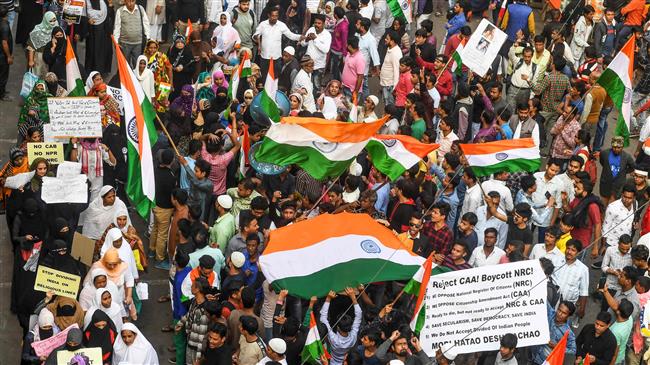

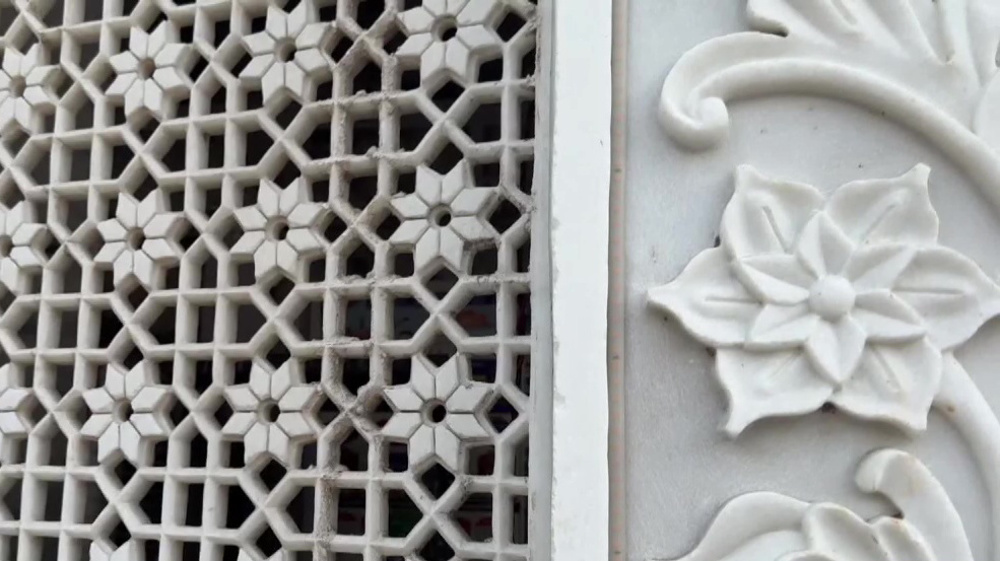
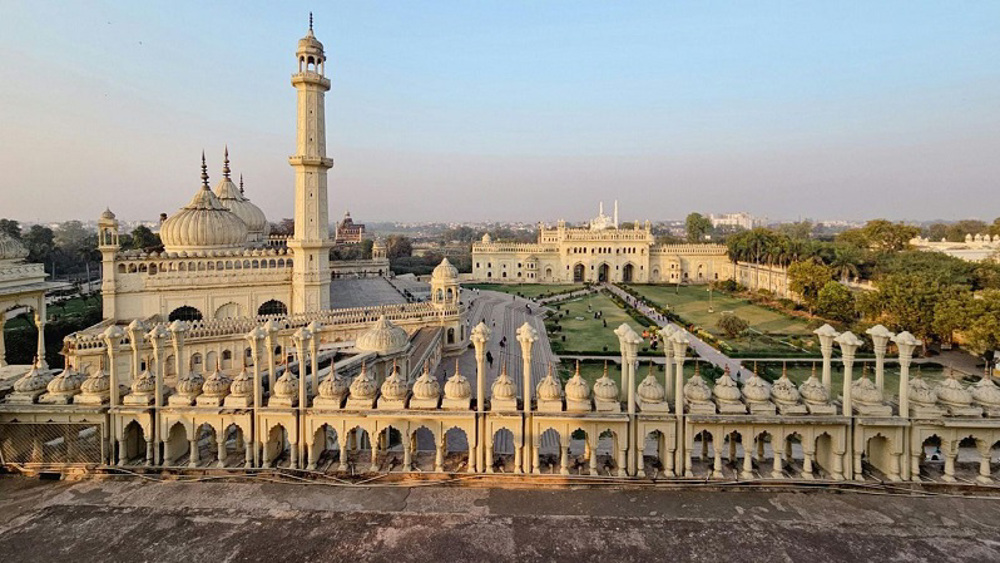




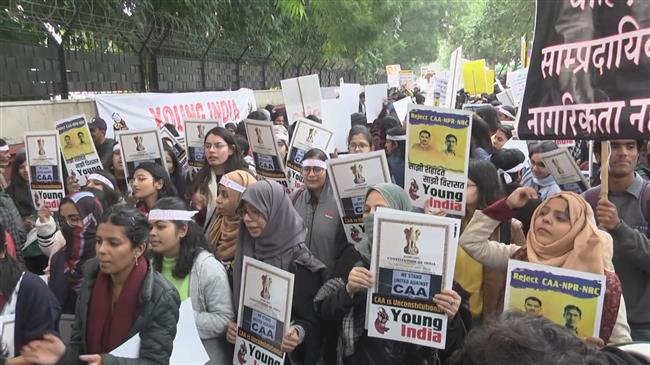
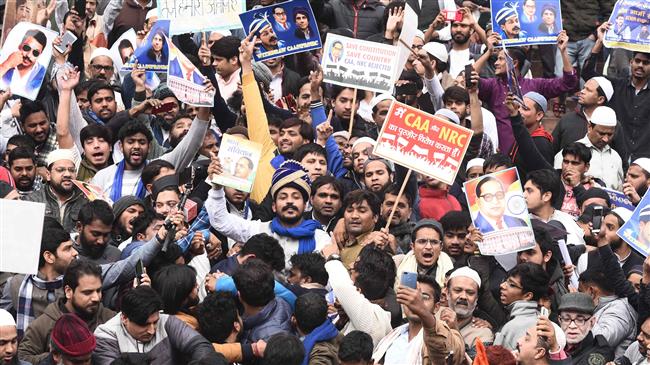
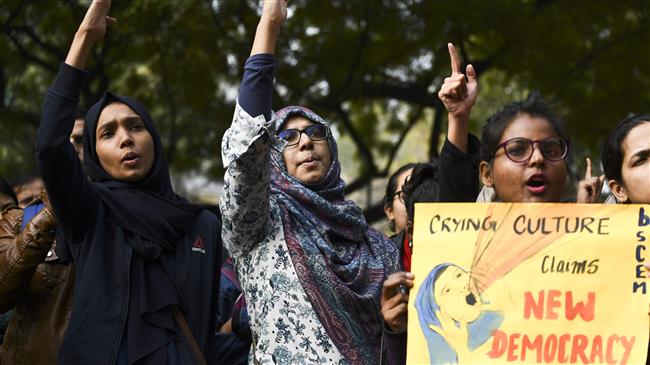

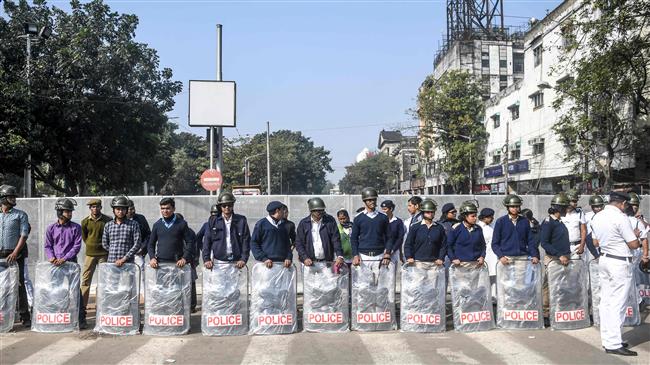

 This makes it easy to access the Press TV website
This makes it easy to access the Press TV website